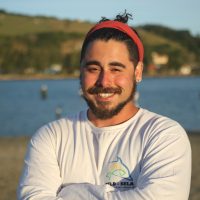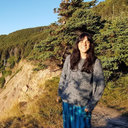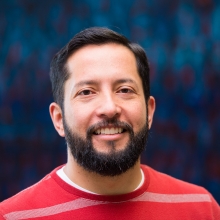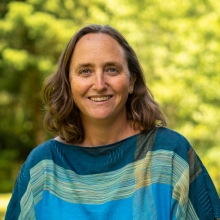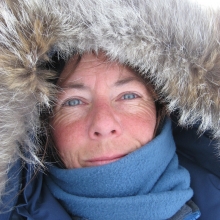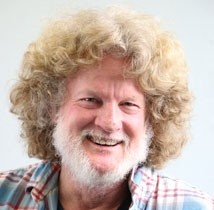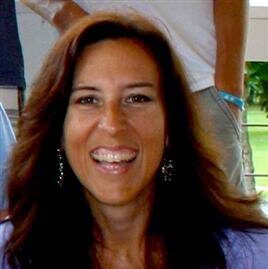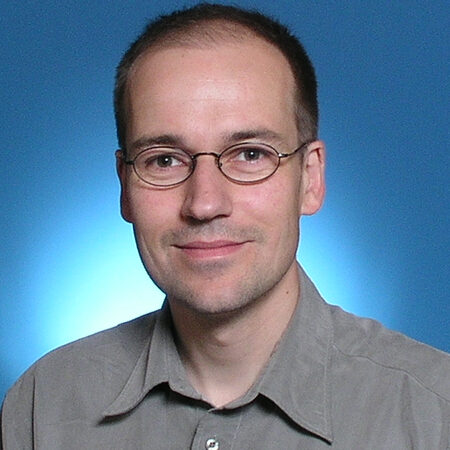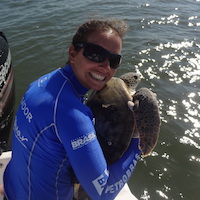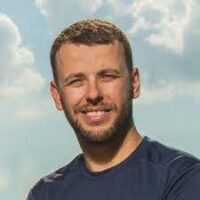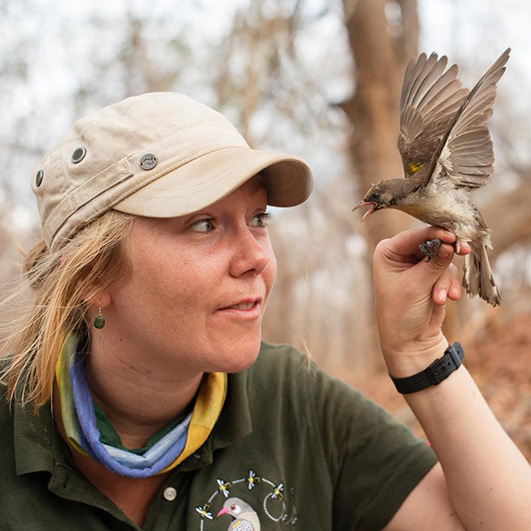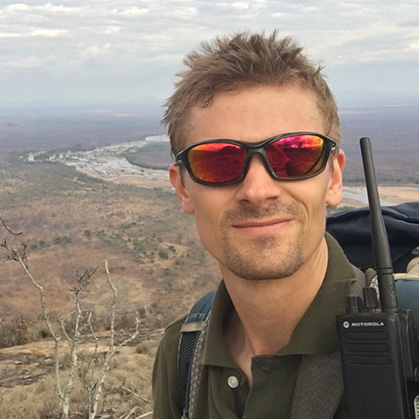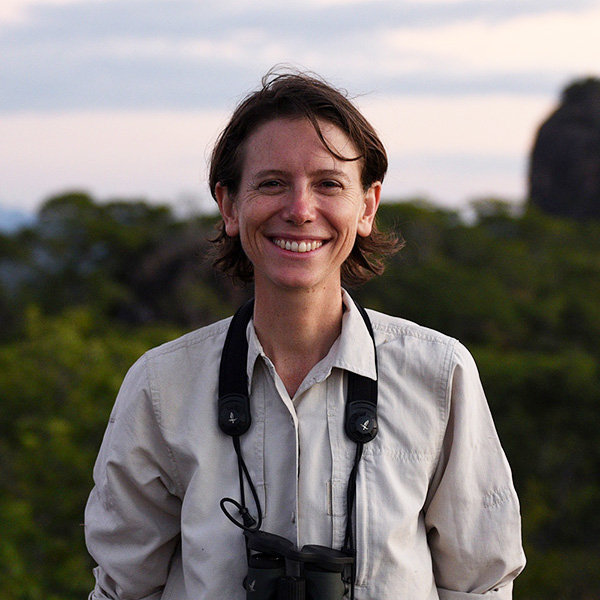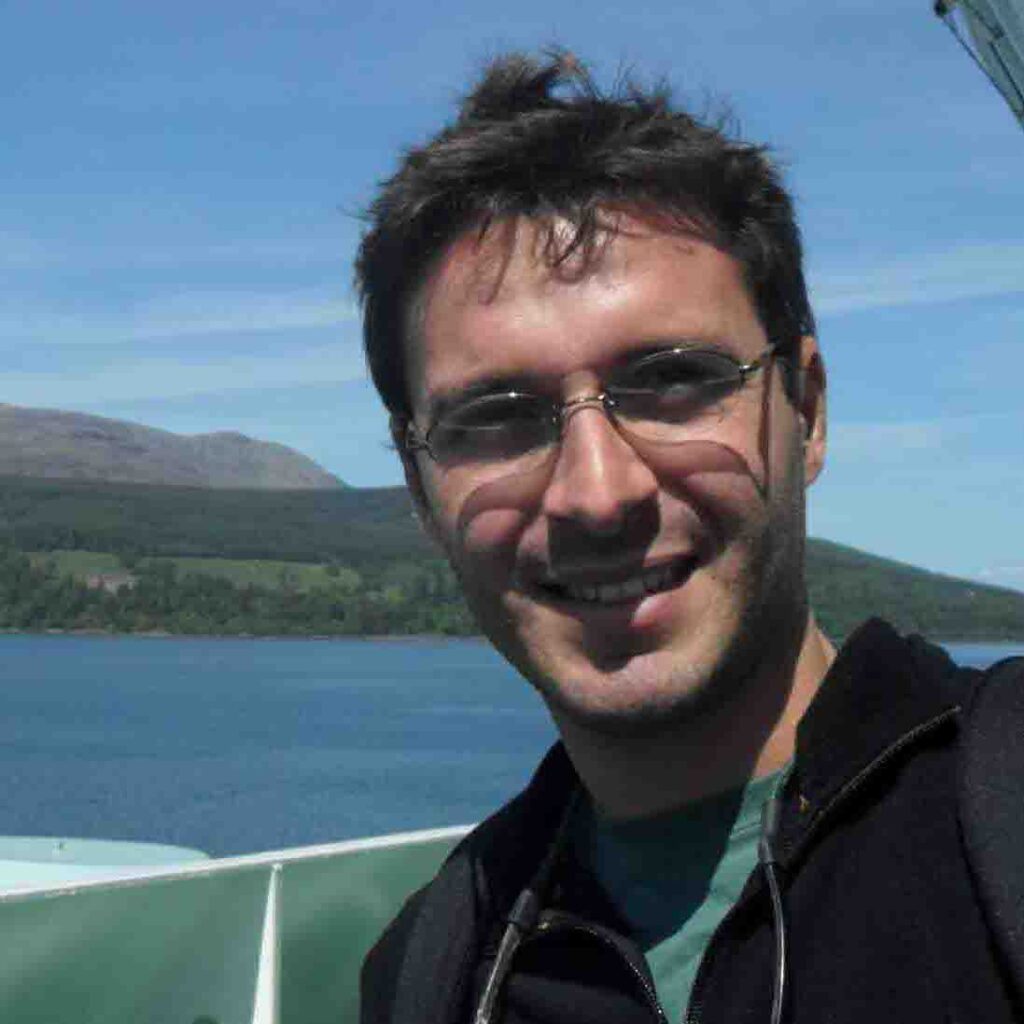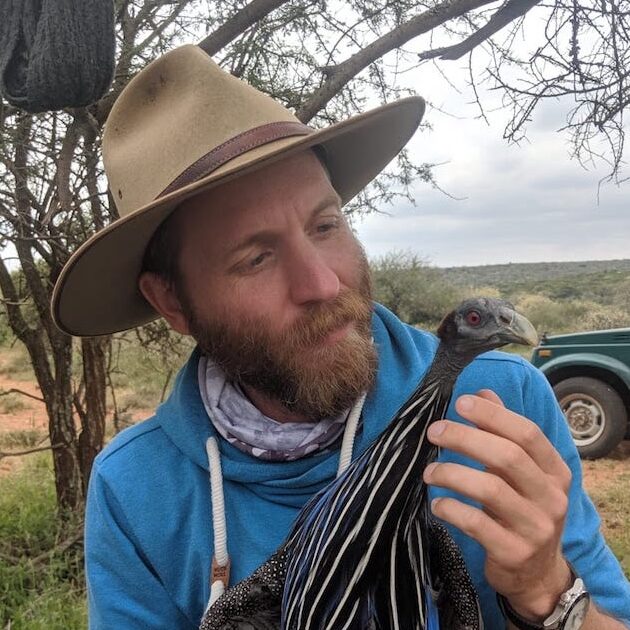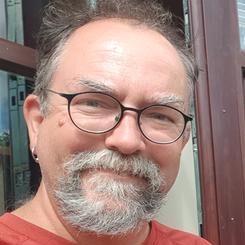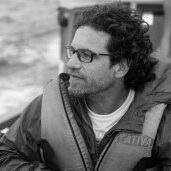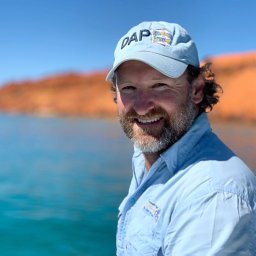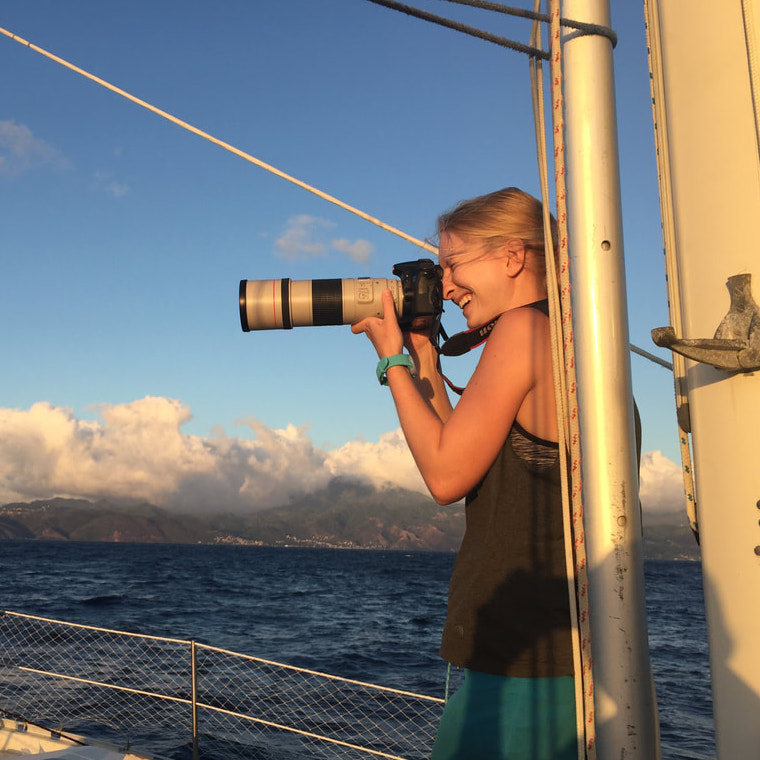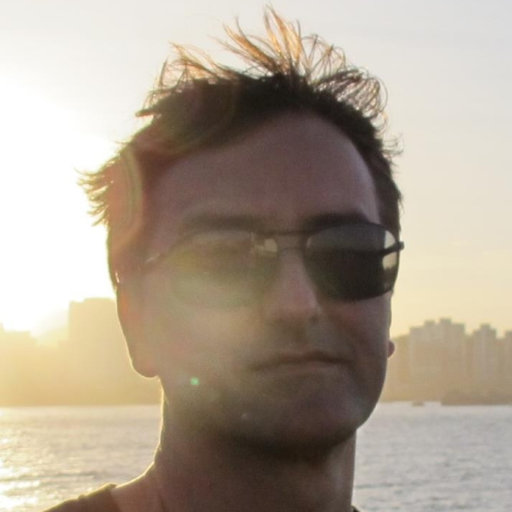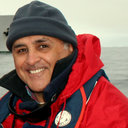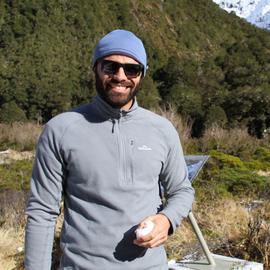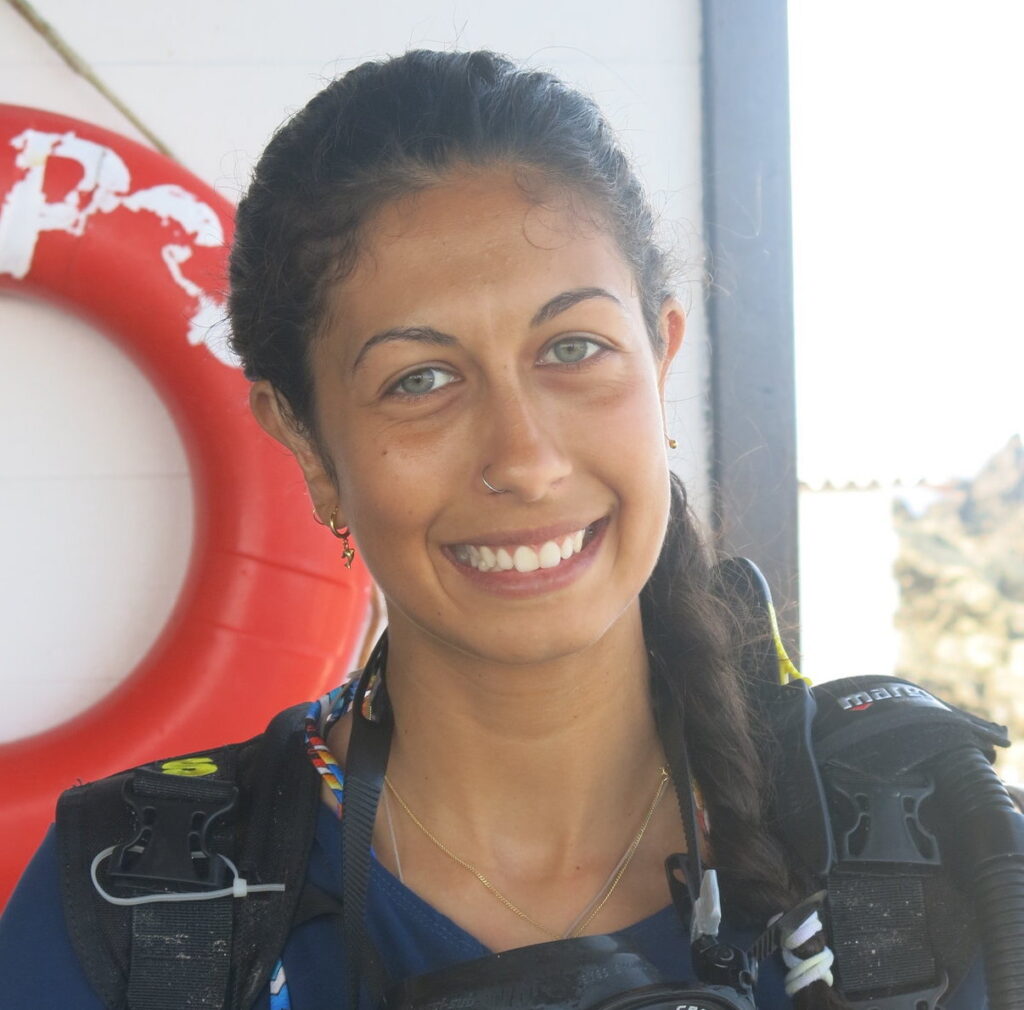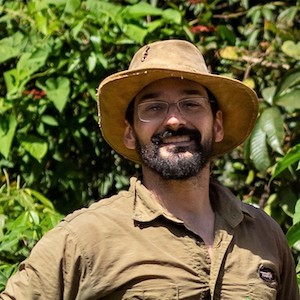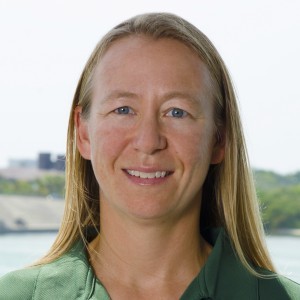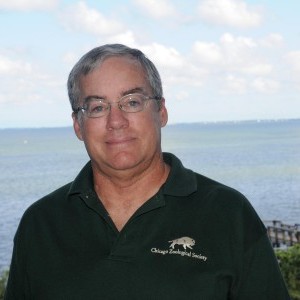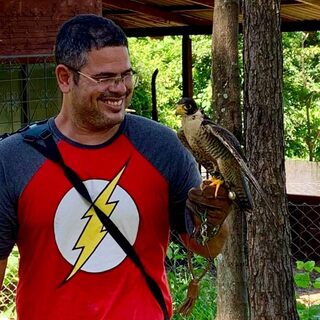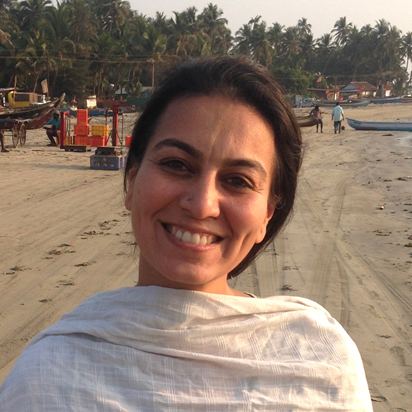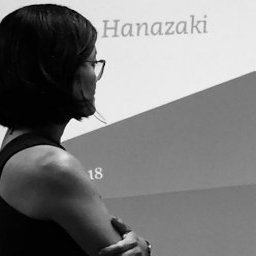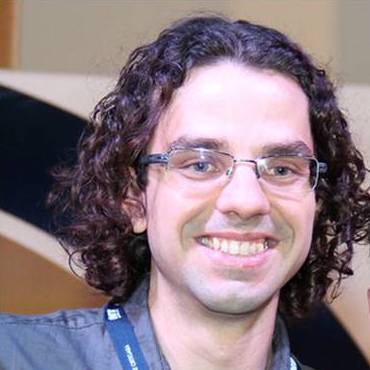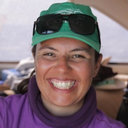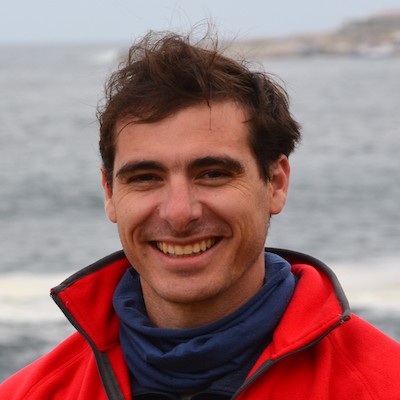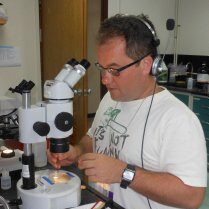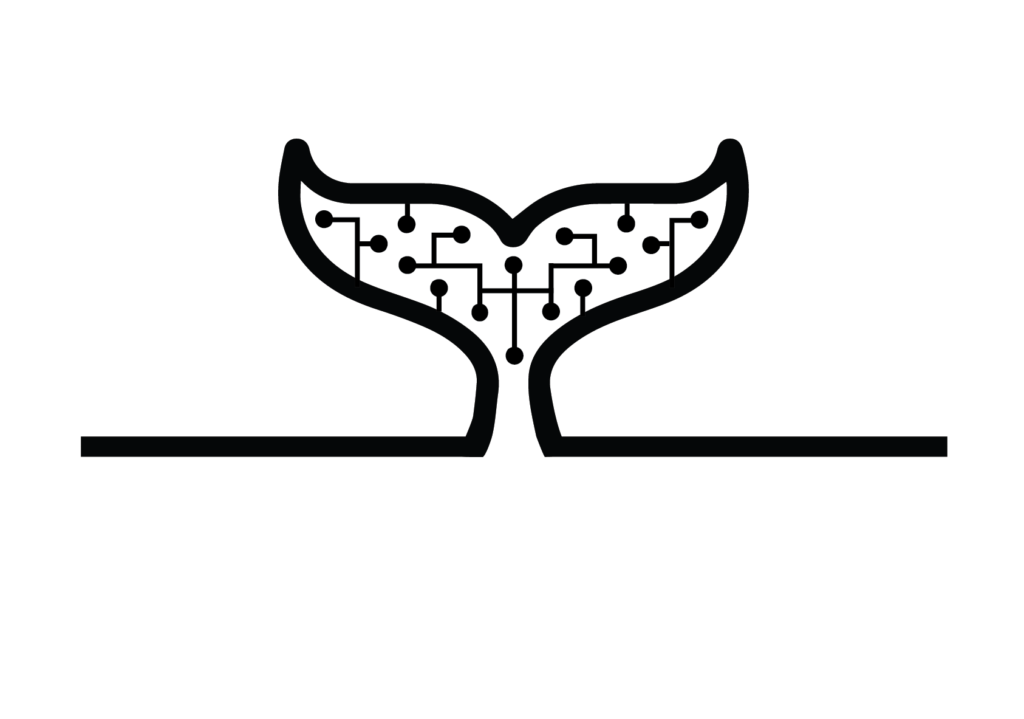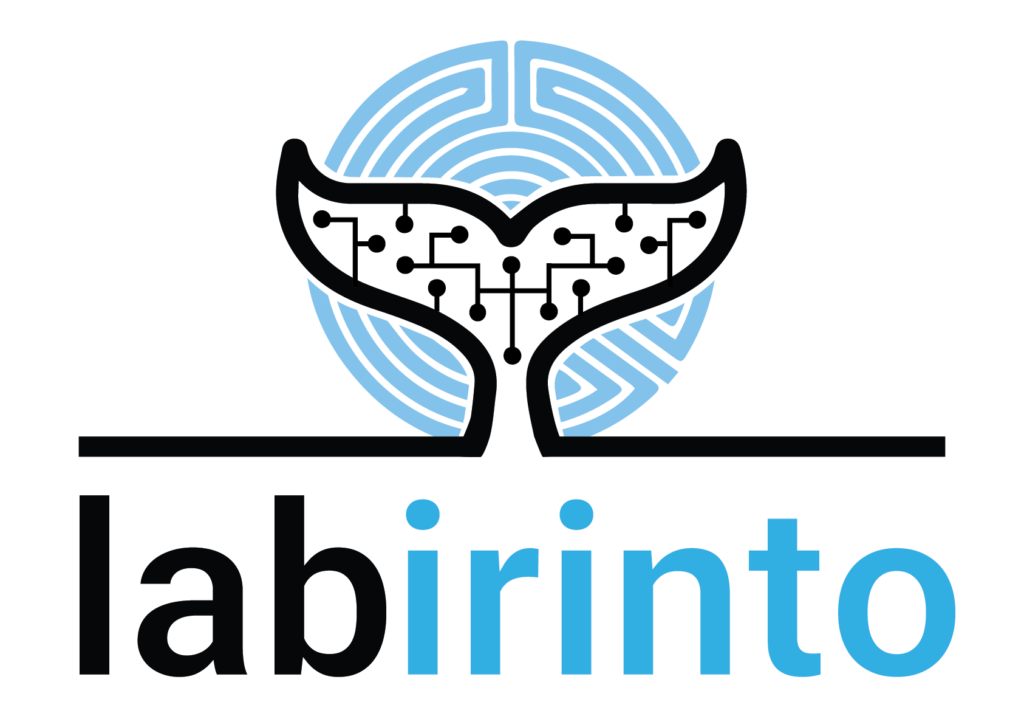
TEAM
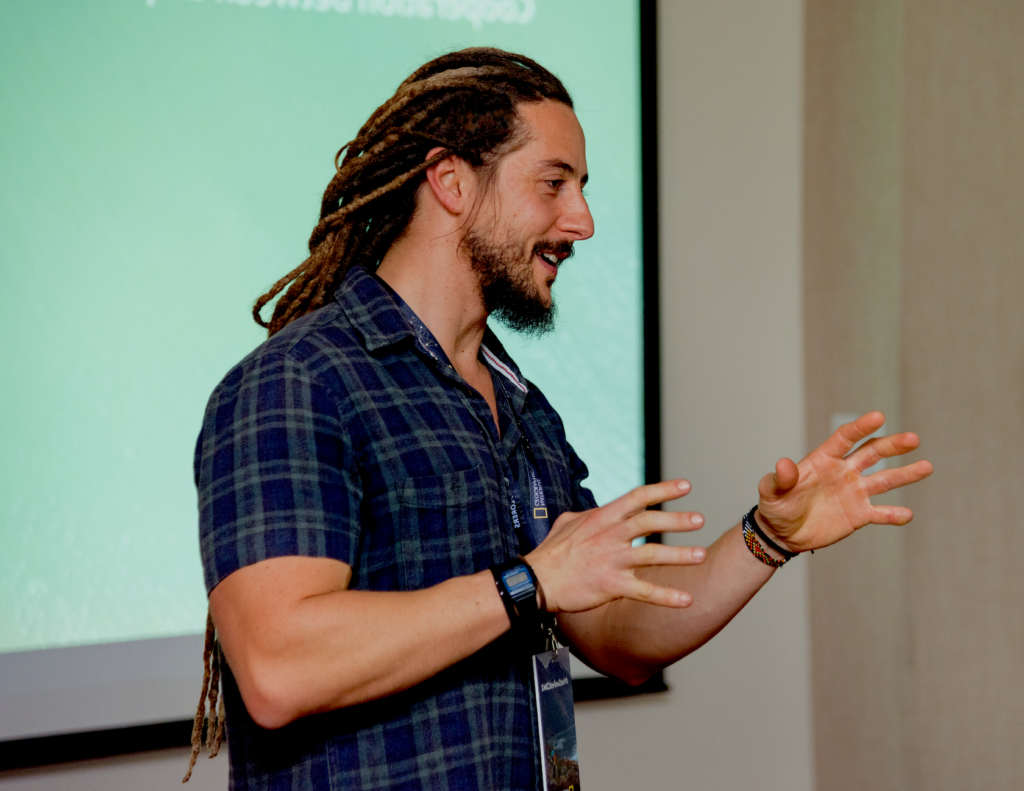
Principal Investigator
Mauricio Cantor is a behavioural ecologist interested in the dynamics of social, cultural and ecological systems and other networked biological phenomena. His empirical research focus on marine mammals as research models due to their behavioral diversity, learning ability and social complexity —not to mention the exciting fieldwork challenges that come with studying them. Mauricio got a BSc in Biological Sciences and a MSc in Ecology in Brazil, and a PhD in Biology in Canada. After some postdoctoral appointments in Brazil, Germany and Switzerland, he is now an Assistant Professor at the Department of Fisheries, Wildlife and Conservation Sciences, and at the Marine Mammal Institute, at Oregon State University, USA, where he leads the LABIRINTO
“We are committed to anti-racism in everything we do, and acknowledge that anti-racism is a path toward dismantling other forms of oppression, including inequities related to gender, sexual orientation, class, ability, religion, or age.”
“Everyone has the opportunity to participate in big decisions. We intentionally seek out different perspectives, including minority opinion of all kinds.”
“We strive to understand where the system is functional and dysfunctional in serving all audiences. We strive for a system that is equitable to all.”
TEAM Members
What is she up to? I am a behavioral ecologist using remote sensing to study marine mammals. I am specifically interested in understanding the relationships between behavior, environment, and individual characteristics including physiology, morphology, sex, age, and health. I have a background in studying marine megafauna using image analysis of drone data. For my PhD I used drone footage to study the behavioral ecology and respiration physiology of the Pacific Coast Feeding Group (PCFG) gray whales. For my postdoc, I am investigating the social behavior of gray whales on the PCFG foraging ground and in the wintering lagoons in Mexico where I’ll also assess the influence of close encounters with humans on their behavior.
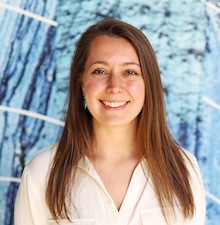
Michaela Kratofil, BSc
2021-present, PhD student at Graduate Program in Wildlife Sciences
Institution: Marine Mammal Institute, Oregon State University
Supervisors: Dr. Mauricio Cantor, Dr. Robin Baird
Thesis: Movement ecology of Hawaiian false killer whales: Influence of the physical environment and social structure, with implications for management
What is she up to? I am a NSF GRFP Fellow at Oregon State University’s Marine Mammal Institute. Leading up to graduate school, I worked as a research assistant at Cascadia Research Collective, a non-profit organization conducting research on marine mammal populations off the US West Coast and Hawaiian Islands, and continue to collaborate with CRC on my thesis research. I’m broadly interested in how animals’ spatial and social environments shape their movement decisions across different scales. My dissertation explores these questions in Hawaiian false killer whales using long-term datasets on satellite tracking, social associations, and biomarkers in collaboration with Cascadia Research Collective (where I am also a Research Biologist). Though my dissertation is focused on false killer whales, I’m involved in a number of research initiatives on Hawaiian odontocetes, many of which use integrative approaches (telemetry, photo-identification, genetics, etc.) to inform conservation and management.

Daiane Santana Marcondes, BSc, MSc
2022-present, PhD student at Graduate Program in Coastal and Oceanic Systems
Institution: Centro de Estudos do Mar, Universidade Federal do Paraná, Brazil, with a research exchange visit at the Oregon State University
Supervisor: Dr. Mauricio Cantor
Co-supervisor: Dr. Camila Domit
Thesis: Social structure and acoustic repertoire of Guiana dolphins in the Paranaguá Estuarine Complex, southern Brazil
What is she up to? Daiane investigates the relationship between acoustic behavior and social structure of Guiana dolphins, and how the exposure to anthropogenic activities can disrupt both social and acoustic repertoires.
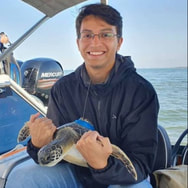
Gabriel Fraga da Fonseca, BSc, MSc
2022-present, PhD student at Graduate Program in Coastal and Oceanic Systems
Institution: Centro de Estudos do Mar, Universidade Federal do Paraná, Brazil, with a research exchange visit at the Oregon State University
Supervisor: Dr. Camila Domit,
Co-supervisors: Dr. Maikon di Domenico, Dr. Mauricio Cantor
Thesis: Spatiotemporal patterns of sea turtle mortality in the Southern Atlantic
What is he up to? Gabriel investigates the spatio-temporal distribution of sea turtle stranding events in southeastern and southern Brazil, by applying a range of modelling techniques to a comprehensive database.
What is he up to? I am a biologist and have a Master’s degree in Ecology (2021) from the Universidade Federal de Santa Catarina, Brazil. My main areas of expertise and research are behavioral ecology, social structure, and cetaceans and artisanal fishers behavior. My PhD work will combine archival and new empirical data to address the behavioral mechanisms of specialized foraging tactics of bottlenose dolphins in Florida Bay and estimate their consequences for population dynamics. I will also develop agent-based models to infer the resilience of the dolphins’ foraging tactics to sea level rise and climate change.
What is she up to? Christine is a biologist and has Master’s degrees in Natural Resource Management and Marine Mammal Science from the University of the West Indies (Cave Hill Campus, Jamaica) and the University of St. Andrews (UK), respectively, and a Bachelor’s degree in Biology from Dalhousie University (Canada). She is a Senior Lecturer at the University of Technology, Jamaica, and is currently on leave working on her PhD in Marine Sciences at the University of the West Indies, Mona Campus where she will be assessing dolphin-fisheries interactions in Jamaica.

Caitlin Nicholls, BSc
2024-present, PhD student
Institutions: Flinders University, Australia; Oregon State University; Georgetown University, USA
Supervisor: Prof. Guido Parra, Prof. Luciana Moller, Prof Shweta Bansal, Dr. Mauricio Cantor
Thesis: How vulnerable are Australian inshore dolphins to the spread of infectious diseases?
What is she up to? I’m a PhD student at Flinders University in South Australia, where I’m researching the vulnerability of inshore dolphin populations to infectious disease outbreaks. My work focuses on three Australian species—Australian snubfin, Australian humpback, and Indo-Pacific bottlenose dolphins—and uses social network analysis and disease modeling to explore how diseases may spread through wild populations. I’m excited to be working on a collaborative project between Flinders University, Oregon State University, and Georgetown University, combining perspectives from marine mammal ecology and infectious disease modeling to better understand these complex systems.
What was she up to? I am a PhD student dedicated to understanding how human interactions with wildlife shape social dynamics within animal communities. After completing my Master’s degree in LABIRINTO, I’ve continued my collaboration with the Sarasota Dolphin Research Program—the longest-running dolphin research initiative in the world. My Master’s research examined how human-centric foraging behaviors influence social associations within the dolphin community in Sarasota Bay. For my PhD, I’m investigating how these behaviors are socially learned among conspecifics and how these patterns can inform cross-species management strategies. Outside the lab, I enjoy spending time outdoors—especially surfing and scuba diving! You can learn more about my research projects on my GitHub: https://github.com/bankheak/
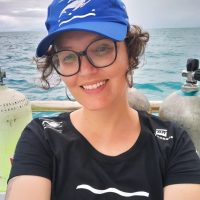
Julia Cavalli Pierry, BSc, MSc
2023-present, visiting PhD student
Institutions: Universidade Federal do Paraná, Brazil, with an exchange visit period at Oregon State University
Supervisor: Prof. Emygdyo Monteiro-Fillho, Dr. Mauricio Cantor
Thesis: From the estuary to the open sea: comparing the social and behavioral organization of the Guiana dolphin along the Brazilian coast
What is she up to? I am a PhD candidate at the Federal University of Paraná (UFPR), Brazil, where I study the complex social lives of the Guiana dolphin, a small coastal delphinid. My research focuses on their social and behavioral ecology, with an emphasis on social organization, reproductive behavior, and parental care. I use drones and field observations to investigate how ecological and social contexts shape dolphin societies across different regions of the Brazilian coast. My fascination with marine mammals began in childhood and grew into a scientific pursuit during my undergraduate studies in Biological Sciences, followed by a Master’s degree in Ecology, both at the Federal University of Santa Catarina (UFSC). In collaboration with OSU, I will broaden the comparative scope of my research by applying new analytical tools to explore how dolphin societies vary across contexts. This partnership is an exciting opportunity to strengthen my PhD work and contribute to a broader understanding of cetacean sociality.

Paul Eshoo, BSc
2024-present, Professional Science Master’s degree in Fisheries and Wildlife Administration
Institution: Oregon State University, USA
Supervisor: Dr. Mauricio Cantor
Capstone Project: Adapting a community-based monitoring program for Irrawaddy Dolphins during the Myanmar coup
What is he up to? Paul Eshoo is a sustainable tourism advisor experienced in developing award-winning ecotourism programs in Southeast Asia and elsewhere. Paul’s main expertise is tourism that focuses on conservation and reducing threats to biodiversity. He is completing his Professional Science Master’s degree in Fisheries and Wildlife Administration investigating the Irrawaddy dolphins in Myanmar
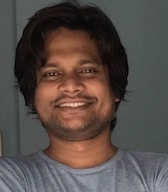
Muhammad Mahmudur Rahman, BSc, MSc^2
2022-2025, MSc student in Wildlife Sciences
Institution: Oregon State University, USA
Supervisor: Dr. Mauricio Cantor
Thesis: Individual variation and social influence of risk-taking behavior in bottlenose dolphins
Mahmud successfully defended his (second) MSc thesis in October 2025!
What is he up to? Mahmud is an international M.Sc. student, coming from a riverine country Bangladesh where the largest population of Ganges River dolphins live. He has a bachelor degree in Fisheries and became interested in dolphins while working with Wildlife Conservation Society, and completed a MSc degree in Fish Genetics and Biotechnology at Khulna University. His primary job was building a citizen science fishermen network to collect data on by-catch of cetaceans (e.g., Ganges River dolphins, Irrawaddy dolphins, Humpback dolphins). Being passionate about electronics, programming, and behavioral ecology, he realized that advanced technology can be used to research mapping behavioral networks. This excites him the most and has pushed him to pursue an M.Sc. in the Labirinto lab. His research investigated risk taking dolphins in bottlenose dolphins in the Florida Keys and their influence on other dolphins. His research project was supported by Mary Lou and Bruce Mate Marine Mammal Fellowship.
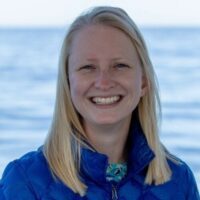
Dr. Taylor Hersh
2023 – 2025: Postdoctoral scholar at the Marine Mammal Institute, L’Oreal USA for Women in Science Fellow
Institution: Oregon State University
Advisers: Dr. Mauricio Cantor, Dr. Kate Stafford
Projects: Social communication in bottlenose dolphins and bowhead whales
Taylor completed her work at Labirinto in March 2025!
What is she up to now? After 1.5 yr at OSU and LABIRINTO leading multiple projects on social acoustic communication, Taylor accepted a research position at Bristol University funded by the Human Frontiers Science Program to expand her research on social communication of marine mammals.
What was she up to? I am a bioacoustician broadly interested in the interplay among vocal complexity, social complexity, and culture in animals. Much of my past research has focused on measuring how animal communication varies over space and time, as well as developing new methods for classifying vocalizations and deducing population structure from acoustic data. With LABIRINTO, I am investigating dolphin social communication during intraspecific cooperative foraging tasks and bowhead whale song diversity in different populations. I received a PhD in Biology from Dalhousie University and did my first postdoc in the Comparative Bioacoustics Group at the Max Planck Institute for Psycholinguistics.
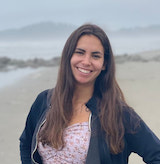
Kyra Bankhead, BSc
2022-2024, MSc student in Wildlife Sciences
Institution: Oregon State University, USA
Supervisor: Dr. Mauricio Cantor
Supervisory committee: Dr. Katie McHugh, Dr. Doug Reese, Dr. Mark Novak, Dr. Selina Heppell, Dr. Doug Warrick
Collaborators: Dr. Randall Wells
Thesis: Human Influenced Environmental Changes Can Impact Foraging and Social Behavior of Wild Dolphins
Kyra successfully defended her MSc thesis in August 2024!
What is she up to now? After completing my master’s degree, I relocated to San Diego to take a year off to spend time with my family. I will then return to LABIRINTO to begin my PhD, where I’ll be collaborating again with the Sarasota Dolphin Research Program to investigate how bottlenose dolphins socially transmit human-centric foraging behaviors using network based diffusion analysis.
What was she up to? I received my Bachelor’s degree with a marine emphasis at Western Washington University, where I worked in Dr. Acevedo-Gutierrez’s Marine Mammal Ecology lab. I developed an immense interest in marine mammal behavioral ecology, and started researching cultural transmission in cetaceans where I came across many of Dr. Cantor’s papers. Thereafter, I earned a MSc degree in Dr. Cantor’s Lab investigating the spreading dynamics of human-induced food provisioning on Sarasota dolphins. The major goal of this study was to quantify the influence of human-centric foraging tactics in the social structure of wild dolphins in Sarasota. Apart from the lab, I spend my time outside, specifically at the beach swimming and scuba diving! You can find more information on my thesis project on my GitHub at https://github.com/bankheak/Dolphins
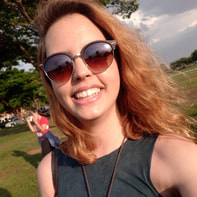
Tainá de Souza Duarte Nogueira, BSc
2020-2024, MSc student at Graduate Program in Ecology
Institution: Universidade Federal da Bahia, Brazil
Supervisor: Dr. Marcos Rossi-Santos
Co-supervisor: Dr. Mauricio Cantor
Thesis: Spatial ecology and conservation status of Guiana dolphin in the Todos os Santos Bay, northeastern Brazil
Tainá successfully defended her MSc thesis in May 2024!
What is she up to now? I am currently working offshore as a Passive Acoustic Monitoring (PAM) operator with plans to return to grad school to pursue a PhD degree to continue my research on marine mammals.
What was she up to? During her master’s Tainá investigated the social structure of the Guiana dolphin population (Sotalia guianensis) that inhabits the Bay of Todos os Santos in Bahia, Brazil, using social proximity data and individual photo identification. In addition, she compared aspects of the social organization, such as group composition and size, across populations, relating social patterns with environmental descriptors and resources availability along the distribution of the species.
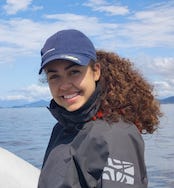
Fernanda Fecci, BSc, MSc
2022-2024, MSc student at the Graduate Programme in Coastal and Oceanic Systems
Institution: Universidade Federal do Paraná, UFPR, Brazil
Supervisor: Dr. Camila Domit
Co-supervisor: Dr. Mauricio Cantor
Thesis: Parental care in Guiana dolphins, a proxy for assessing anthropogenic impacts on the Paranaguá Estuarine Complex, Brazil
Fer successfully defended her MSc thesis in April 2024!
What is she up to now? I am currently working on the research project Monitoring the Coastal Megafauna of the Paraná Coast (MegaCost-PR). The project aims to assess and monitor impacts on marine megafauna, especially cetaceans such as the porpoise and the gray dolphin, sea turtles and groupers. The activities are technical in Conservation Units and their adjacent areas, using methodologies such as photo-identification, drone, acoustic telemetry and environmental DNA to study the distribution, behavior and impacts on biodiversity. In addition to collecting biological data, the project proposes the technical and financial evaluation of the methodologies applied, and the dissemination of the results to promote conservation and public understanding. With a duration of 24 months, the project also includes workshops, courses and a documentary to educate and engage the local community and managers in effective conservation practices.
What was she up to? Fernanda combined behavioural sampling with drone imaging analyses to investigate the influence of anthropogenic activities on the parental care of Guiana dolphins at the Paranaguá Estuarine Complex, southern Brazil
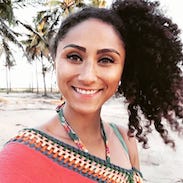
Dr. Stephane P. G. de Moura, BSc, MSc, PhD
2019-2024, PhD at the Graduate Programme in Coastal and Oceanic Systems
Institutions: Universidade Federal do Paraná, UFPR, Brazil, with a research exchange visit completed at the Oregon State University, USA
Supervisor: Dr. Camila Domit
Co-supervisor: Dr. Mauricio Cantor
Thesis: Distribution and spatial dynamics of Guiana dolphins, Sotalia guianensis, and the potential vulnerability to impacts on the Paraná coast, southern Brazil
Sté successfully defended her PhD thesis in March 2024!
What is she up to now? Iam a postdoctoral researcher at the Laboratory of Ecology and Conservation at the Federal University of Paraná, Brazil. Additionally, I am engaged in monitoring cetaceans in coastal construction areas, contributing to the environmental licensing process.
What was she up to? I studied the spatial dynamics and habitat selection of Guiana dolphins on the Paraná Coast, southern Brazil, and how these parameters are affected by anthropic activities. My main interests are in population and behavioral ecology, including topics such as behavior and group structure; photo-identification; population parameters; residence patterns; distribution and spatial dynamics; habitat use; habitat selection; habitat modeling; ecological traps; and cetaceans vulnerability to anthropic impacts. I always loved the ocean, and working for its conservation is a personal accomplishment.
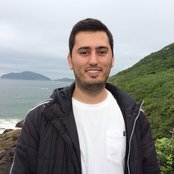
Dr. Alexandre M.S. Machado, BSc, MSc, PhD
2019-2024, PhD at the Graduate Programme in Ecology
Institution: Universidade Federal de Santa Catarina, UFSC, Brazil
Supervisor: Prof. Fabio Daura-Jorge
Co-supervisor: Dr. Mauricio Cantor
Thesis: The role of environment and individual differences on the dolphin-fisher mutualism
Ale successfully defended his PhD thesis in January 2024!
What is he up to now? I am an associate researcher at the Laboratory of Aquatic Mammals (LAMAq) at Universidade Federal de Santa Catarina (UFSC). I have been working on Project MARESIS investigating the individual variation in behavioral responses of cetaceans to anthropogenic noise. I am also a postdoctoral fellow at the Graduate Programme in Ecology at Universidade Federal de Santa Catarina, where I continue to study the role of individual variation in a dolphin-fisher mutualism.
What was he up to? I am a biologist with a master’s and PhD in Ecology at Universidade Federal de Santa Catarina. My research is on the interface between behavioral ecology and population ecology, combining multiple platforms of data collection, computational tools, and quantitative methods to investigate the multifaceted dimensions of ecological interactions. In my PhD, I investigated the individual variation in dolphins that forage with artisanal fishers and whether individuals have asymmetrical contributions to the benefits accrued in this rare case of human-wildlife cooperation. Ultimately, I helped to unravel the mechanisms underlying individual variation among dolphins foraging with fishers and quantify the population-level implications of such variation.
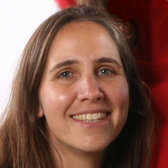
Dr. Shanan Atkins, BSc, MSc, PhD
2018-2023, PhD candidate at the School of Animal, Plant and Environmental Sciences
Institution: University of the Witwatersrand, Johannesburg, South Africa
Supervisor: Prof.Dr. Neville Pillay
Co-supervisor: Dr. Mauricio Cantor
Thesis: Identifying leverage points to solve the human-wildlife conflict regarding shark nets
Shanan successfully defended her PhD thesis in June 2023!
What is she up to now? After earning my PhD degree, I was offered a job, tasked with building and coordinating HuDoNet, the Indian Ocean Humpback Dolphin Conservation Network. This network of researchers aims to galvanise science-based conservation action for the Endangered humpback dolphin across the species range.
What was she up to? I am wild about biodiversity in all its amazing manifestations and am driven to use science to inform effective conservation action to prevent the loss of biodiversity. I started out investigating the interactions between the Endangered Indian Ocean humpback dolphins and shark nets set to protect swimmers and surfers along the KwaZulu-Natal coast in South Africa. I’ve ended up doing a PhD studying the bigger picture, trying to see both the social and the ecological elements. My aim is to identify obstacles and opportunities to change this human-wildlife conflict that involves sharks, bathers and other marine megafauna that is caught unintentionally.
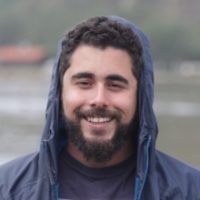
João Victor Silva do Valle Pereira, MSc
2023, post-MSc internship at Graduate Programme in Ecology
Institution: Universidade Federal de Santa Catarina, Brazil & Max Planck Institute of Animal Behavior, Germany
Supervisor: Prof. Fabio Daura-Jorge
Co-supervisor: Dr. Mauricio Cantor
Project: Social foraging and hunting performance in human cooperative systems
João successfully completed his MSc degree in December 2022 and completed a post-mic research internship in December 2023!
What is he up to now? I am a PhD student at the Wildlife Science program at the Oregon State University, now full time at the Labirinto.
What was he up to? I am a biologist and have a Master’s degree in Ecology (2021) from the Universidade Federal de Santa Catarina, Brazil. My main areas of expertise and research are behavioral ecology, social structure, and cetaceans and artisanal fishers behavior. I am interested in the fishing dynamics in Laguna, where artisanal fishers fish with the assistance of wild bottlenose dolphins. I currently work as an outreach fellow of the Long-Term Ecological Research Program (PELD) of the Laguna and Adjacent Estuarine System (SELA) in Brazil, and as a guest researcher in the Centre for the Advanced Study of Collective Behaviour of the University of Konstanz (Germany). Besides that, the pillars of my curiosity are social behavior, evolution, and systemic theory, in addition to the people who continue to provide me with the fuel that keeps my quest for knowledge burning. Nature is splendid. “I took a walk in the woods and came out taller than the trees” (Henry Thoreau).
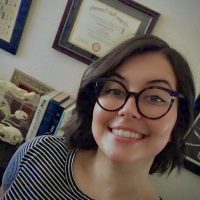
Kellan Parker, BSc
2023, graduate certificate student in Wildlife Management
Institution: Oregon State University
Supervisor: Dr. Mauricio Cantor
Project: Social Dynamics and Agonistic Behavior in California Sea Lions in Nonbreeding Colonies
Kellan successfully graduated in June 2023!
What was she up to? I hold a Bachelor’s degree in Fisheries & Wildlife Sciences with a specialization in conservation biology, as well as a graduate certificate in Wildlife Management from Oregon State University. During my academic tenure, I worked as a research fellow in the Undergraduate Research in the Sciences and Arts (URSA) program under the guidance of Dr. Sanchez. My research focused barn owl behavior and nest box adoption success. Throughout my academic journey, I nurtured a profound interest in conservation behavior, with primary focuses on behavioral ecology, conservation biology, and wildlife management. Presently, I am a research analyst for Dr. Eleanor Gaines at the Institute for Natural Resources (INR), where I conduct in-depth species analyses on native reptiles and amphibians in Oregon. Additionally, I work as a writing technician for Dr. Todd Wilson affiliated with the United States Forestry Service (USFS), researching Humboldt’s flying squirrels as crucial indicators of long-term forest health. Beyond my professional commitments, I spend most of my time outside taking wildlife photographs or create insightful science-related content for social media. You can find more information about my science communication activities on my website, https://kellaneparker.squarespace.com
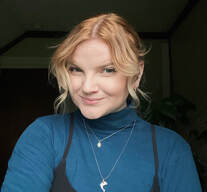
Kiera McGarvey Sears, MSc
2022, MSc student at University College Cork, Ireland
Institution: Oregon State University, USA
Co-supervisors: Dr. Mauricio Cantor, Prof. Emer Rogan, Prof. Fabio Daura-Jorge
Thesis: Parallel Lives: Do bottlenose dolphins cooperate amongst themselves when foraging with artisanal net-casting fishers?
Kiera successfully completed (and received first-class honors for) her MSc in August 2022!
What is she up to now? I am working as an aerial observer with the Florida Fish and Wildlife North Atlantic Right Whale team dedicated to tracking the reproduction success of these endangered whales. Before this I had just finished the last field season of Rebecca Dunlop and Mike Noad’s Hearing in Humpback whales Acoustic Research Collaboration (HHARC) a multi year project designed to assess the hearing levels of baleen whales through acoustic experimentation.
What was she up to? Kiera studied the fine-scale foraging coordination among bottlenose dolphins that interact with artisanal net-casting fishers in Laguna, southern Brazil, to investigate whether this foraging tactic represents a case of social predation for the dolphins. Kiera quantified the degree to which groups of dolphins coordinate their actions during their interactions with the artisanal fishers, by measuring the cohesion, heading, and breathing synchrony of dolphin groups of different sizes in aerial drone footage of the interaction. Kiera was a visiting MSc student from the University College Cork, carrying out her thesis at the Marine Mammal Institute, Oregon State University.
Visiting Scholars

Dr. Luke Rendell
2024, Reader in Biology, University of St. Andrews, UK
Dr. Rendell visited the LABIRINTO for 3 weeks in September 2024 as a HMSC Lavern Weber Visiting Professor to collaborate on research in bioacoustics of dolphins and sperm whales, and on a new course FW547/557 Biology, Ecology and Conservation of Marine Mammals.

MSc Éadin O’Mahony
2024, PhD student at the Scottish Oceans Institute & Centre for Biological Diversity, St Andrews University, UK
PhD student Éadin O’Mahony visited the MMI, and LABIRINTO, for 2 weeks in September 2024 to collaborate on their research on baleen whales

Dr. Rodrigo Tardin
2024, Assistant professor, Department of Ecology, Universidade Federal do Rio de Janeiro, Brazil
Dr. Tardin visited the LABIRINTO for 3 months, August to November 2024 as a CAPES-PRINT Visiting Professor to collaborate on research in coastal dolphins in South America.

Dr. Tara Whitty
2024, President & Consultant for Keiruna Inc., California USA
Dr. Whitty visited MMI at Oregon State, and LABIRINTO, for 3 weeks in August 2024 to collaborate on a new graduate course FW568 Human Dimensions of Marine Mammal Conservation

Dr. Diego Barneche
2024, Ecological Statistician, Australian Institute of Marine Sciences, Australia
Dr. Barneche visited the LABIRINTO for 1 week in August 2024 to collaborate on research in marine ecology

MSc. Larissa Dalpaz
2023, PhD student in Ecology, Universidade Federal de Santa Catarina, Brazil
MSc. Dalpaz visited the LABIRINTO for 1 week in July 2023 to collaborate on her research on by catch of dolphins in small-scale fisheries
Collaborators
SERGIO RICARDO FLOETER
SERGIO RICARDO FLOETER, Universidade Federal de Santa Catarina, Brazil
Click herePedro Volkmer de Castilho
Pedro Volkmer de Castilho, Universidade do Estado de Santa Catarina
CLICK HERE

